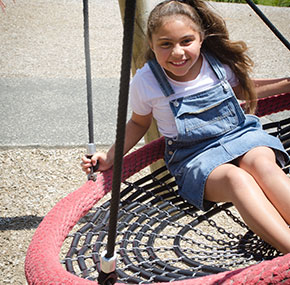Workshops/facilitators
Thanks to all facilitators who are kindly running the workshops!
Facilitators: please remember to bring your own laptops, USBs and lead cables. Ensure your wifii is connected prior to your workshop should you need the internet. A quick tip: saves a lot of time if you save your presentation to your desktop.
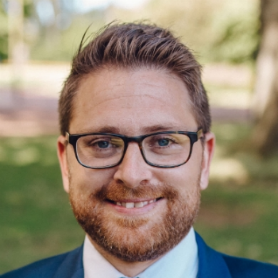
Daimhin Warner
Daimhin Warner is Auckland Director of privacy consultancy Simply Privacy. He is a privacy professional with 9 years experience in both the public and private sector. Daimhin worked with the Office of the Privacy Commissioner for 7 years, between 2007 and 2014, most recently managing the Commissioner’s Auckland Investigations Team.
Workshop session: The privacy act and vulnerable children: a pragmatic approach
1.45pm-3.00pm, 27 April at Cole theatre space (left of stage) (this session is also repeated at 3.30pm 27 April)
This workshop will cover the basic requirements of the Privacy Act in a pragmatic and common sense way, focusing on the collection and disclosure of sensitive information about children and their families. It will assist those working with vulnerable children to understand the boundaries of the law and feel able to share sensitive information at the right times. It will also briefly explain the Privacy Act complaints process.
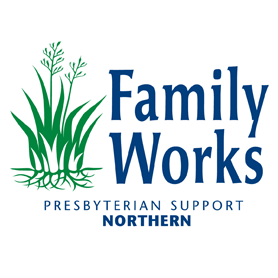
Sally Kennedy
Sally Kennedy is Regional Administrator Advisor for FWN and describes herself as a “souvenir” from her husband’s travels in Africa. Sally moved to NZ in 1986. Originally a software consultant writing financial systems she took time out from the paid workforce to raise a family and become involved in the volunteer sector. This resulted in many years of involvement in the early childhood education sector culminating in four years as a Board Member of New Zealand Kindergartens, two of them as President. Sally coached a football team and enjoys children being involved in sports and other fun activities.
Workshop session: World cafe
1.45-3.00pm 27 April at Promenade area
You are invited to join a world café event to explore ways to further develop a culture of knowledge sharing, what it takes to unleash one’s full potential all while enjoying your day at work.
Join the World Café event that is happening right here at conference.
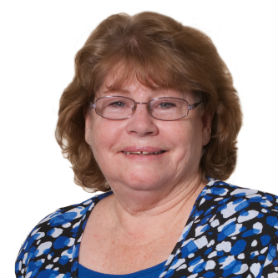
Maureen Little
Maureen Little has worked in the PSN Budgeting and Money management service for 28 years and is renowned for her up to date knowledge and helpfulness around low income issues.
Workshop session: Why Budget? Budgeting on a low income – advice and information for all staff working with families on a low income
1.45pm-3.00pm 27 April at Cole theatre space (right of stage)
This workshop will provide you with important information, helpful in your advocacy work e.g. with clients around their WINZ entitlements.
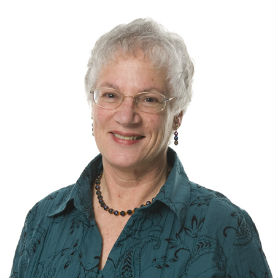
Jill Proudfoot
Jill Proudfoot is the Client Services Director at Shine. Since 2001 she has worked with victims and perpetrators of domestic abuse and their children. Her focus has always been safety leading to wellbeing, and her area of special interest is assessing risk carefully and thoroughly in order to inform decisions and actions.
WORKSHOP FULL
Workshop session: Domestic abuse: children’s risk assessment in practice
1.45pm-3.00pm 27 April at conference room 1 (this workshop is repeated at 3.30pm)
The long term impact on children is the same, whether they witness abuse between parents or are the direct targets of abuse” (Mertin and Mohr, 2002) (Runyan, 2006) (Carroll, 1994).
This workshop will focus on risks for children living with domestic abuse. There’ll be a discussion about a children’s risk assessment tool that is being developed, so bring your ideas about what you need in your practice. We’ll also talk about self-harm and suicidality amongst adolescents who have been exposed to abuse of a parent, and prevention strategies to reduce the risk of these serious outcomes.
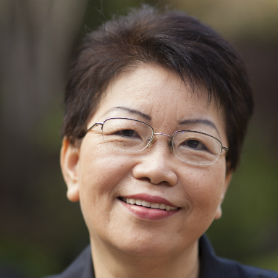
Sue Lim
Sue Lim is the eCALD® National Programme Manager. Sue has developed a range of Asian-specific culture and language services, and interpreting services and has produced a number cross-cultural courses and resources and publications.
Workshop: Working with cultural diversity
1.45pm-3.00pm 27 April at conference room 2
The aim of this workshop is to introduce participants to ways that you can interact in a culturally competent manner with culturally diverse population.
Cultural competence refers to an ability to communicate and interact effectively with people from cultural backgrounds different to one’s own. It is not just about knowing another person’s culture, it is about understanding how cultural differences impact on the patient/client – health professional relationship and being able to adjust your behaviour to accommodate these differences for the best patient outcomes.

Judith Morris
Judith has worked therapeutically with children for over 30 years in New Zealand and as an invited trainer in other regions of the world.
Workshop session: Working effectively with vulnerable children
1.45-3.00pm 27 April at conference room 3 (workshop will be repeated 3.30pm 27 April)
Following on from the Keynote presentation Judith will assist practitioners to explore therapeutic approaches to working with vulnerable children.
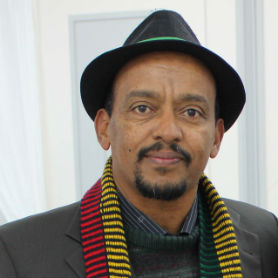
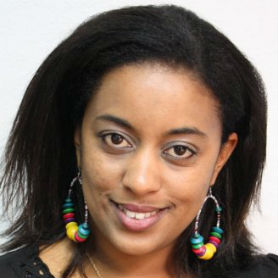
Dawit Arshak and Rosemine Mutamuliza
Dawit Arshak is from Ethiopia, came to NZ as a refugee in 1998 and is married with 5 AfroKiwi children. Dawit regularly gives voice to the experience of refugee parents and their children and offers to respond to any questions asked. Since 2005 Dawit has been working in the refugee sector; currently working for NZ Red Cross as Resettlement Case Worker.
Rosemine Mutamuliza
Rosemine N. Mutamuliza BSocP, RSW a Social Worker at New Zealand Red Cross with the Refugee Program. She is a native of Rwanda and citizen of New Zealand, having arrived in new Zealand in 1999 as a refugee. Rosemine graduated with a Bachelor of Social Practice majoring in Community Development. She provides comprehensive assessments and settlement support to newly arrived quota refugees resettling in the Auckland Region, with the goal to regain control of their lives and access to services independently. Rosemine strives for social justice and the right for all people to have equity of access to services.
Workshop: Through our eyes – practice issues and engagement with children and families from refugee backgrounds
1.45-3.00pm 27 April at Cabine
This workshop will invite you into a perspective of some matters to consider whilst engaging with families from a Refugee background. Moving is hard for anyone but former refugees often need extra support. The Refugee Experience is diverse, they are ordinary people experiencing extraordinary circumstances most of the families are incredibly resilient. You will hear a first account refugee journey story. We will touch on the different refugee categories in New Zealand, the support provided by the NZ Red Cross. Together we will explore ways to engage with culturally and linguistically diverse former refugee communities and the available resources to begin breaking barriers to access services.
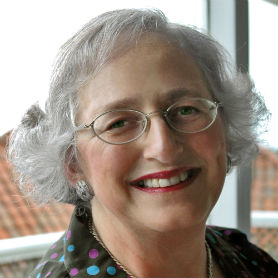
Diane Levy
Diane Levy is a Counselor, Family Therapist, Speaker and Author of the best-seller “Of course I love you…NOW GO TO YOUR ROOM!”, “They look so lovely when they’re asleep” and “Time Out for Tots, Teens and Everyone in Between.” In 2005 she was the Therapist/Presenter of the television programme “Demons to Darlings.”
Diane is known for her practical, informative and humorous approach to the problems that beset parents, educators, couples and families – whether at work or at home.
WORKSHOP FULL
Workshop session: Parenting with compassion – helping parents respond to their children’s upset and angry feelings
1.45pm-3.00pm 27 April at Regent room (workshop repeated at 3.30pm 27 April)
This workshop will support practitioners to develop a different way of thinking about children’s anger, how to sort out whether we are dealing with a control, upset or despair issue and practical suggestions about how we can help parents and care-givers respond effectively.
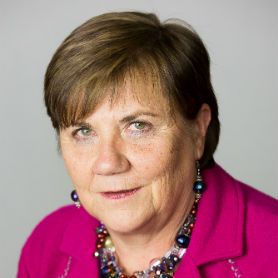
Jan Duke
Dr Jan Duke is a registered social worker and the Registrar[Registration & Education] at the Social Workers Registration Board (SWRB). Prior to taking up her position at the Board she was a professor and Head of Graduate School at Victoria University of Wellington and one of the inaugural SWRB board members appointed in November 2003. Jan, who also holds qualifications in nursing and midwifery, completed her undergraduate social work degree at the University of Sydney.
Workshop session: Starting out: social worker registration
1.45-3.00pm 27 April at Cole theater space (on stage)
This workshop will address the requirements for ful and provisional registration for those who are starting out on the process or have just started. Clearly and simply it will outline the application process and timeframes. This will include applicants who wish to apply under Section 13 of the Social Workers Registration Act – that is for applicants with extensive social work experience but no formal social work qualification.
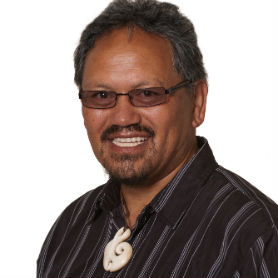
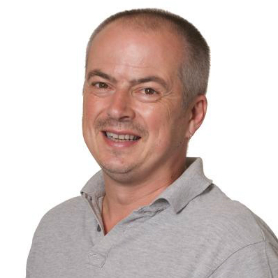
Daniel Hauraki
Daniel Hauraki is our Maori Advisor having returned to Presbyterian Support Northern after delivering cultural supervision to Department of Corrections. He has previously held national cultural capability development roles with Plunket NZ, Quit NZ and the Public Prisons Service. Daniel holds a Bachelor in Māori Performing Arts and Masters qualifications in Matauranga Māori, Māori and Management Studies, and Te Reo Māori.
Ian Tomkins
Ian Tomkins is Practice Leader for Family Works Northern having worked for FWN for 8 years and CYF prior to this. From the Peoples Republic of Manchester, Ian has mostly worked with children and families in child protection, disability services, advocacy, direct work, and family work in various locations, alongside training and workforce development initiatives. Enjoys lollies.
WORKSHOP FULL
Workshop session: Working with Maori whanau who are ‘urbanised’
3.30-4.30pm 27 April at Cole theatre space (right of stage)
Whitiwhiti Korero: discussion group including framework for identifying the needs of urbanized Maori whanau and possible pathways to working with Maori towards continuing reconnection

Sally Kennedy
Workshop session: Joining the dots (administrators only)
3.30pm-4.00pm 27 April at Mezzanine space
Administrator workshop to collate and extrapolate the ideas from the World Café event.

Jan Duke
Workshop session: Getting over the line: social worker registration
3.30-4.30pm 27 April at Cole theatre space (on stage)
This workshop will address the requirements for full and provisional registration for those who are on the pathway. Clearly and simply it will outline the application process and timeframes. This will include applicants who wish to apply under Section 13 of the Social Workers Registration Act – that is for applicants with extensive social work experience but no formal social work qualification.

Jill Proudfoot
WORKSHOP FULL
Workshop session: Domestic abuse: children’s risk assessment in practice
3.30-4.30pm 27 April at conference room 1 (also at 1.30pm 27 April)
The long term impact on children is the same, whether they witness abuse between parents or are the direct targets of abuse” (Mertin and Mohr, 2002) (Runyan, 2006) (Carroll, 1994).
This workshop will focus on risks for children living with domestic abuse. There’ll be a discussion about a children’s risk assessment tool that is being developed, so bring your ideas about what you need in your practice. We’ll also talk about self-harm and suicidality amongst adolescents who have been exposed to abuse of a parent, and prevention strategies to reduce the risk of these serious outcomes.
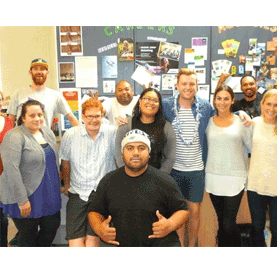
YWiSS
The YWISS team are a gregarious collaboration of social workers and youth workers through ATWC and FWN. This new project has proven valuable help to shape the way that we engage in school.
Workshop session: Check and Connect – supporting our vulnerable youth to stay engaged in school
3.30-4.30pm 27 April at Regent room (repeated 10.45am 28 April)
This workshop will look at such questions as: What are the tools needed to support vulnerable young people who are losing interest in school? What are important values to effectively collaborate with schools? What are measures of success when applying our engagement within an education structure? How do you know if your work is making an impact on the student and the school as a whole?

Judith Morris
Workshop session: Working effectively with vulnerable children
3.30-4.30pm 27 April at conference room 2 (also at 1.45pm 27 April)
Following on from the Keynote presentation Judith will assist practitioners to explore therapeutic approaches to working with vulnerable children.

Daimhin Warner
Workshop session: The privacy act and vulnerable children: a pragmatic approach
3.30-4.30pm 27 April at Cole theatre space (left of stage) (also at 1.45pm 27 April)
This workshop will cover the basic requirements of the Privacy Act in a pragmatic and common sense way, focusing on the collection and disclosure of sensitive information about children and their families. It will assist those working with vulnerable children to understand the boundaries of the law and feel able to share sensitive information at the right times. It will also briefly explain the Privacy Act complaints process.

Diane Levy
WORKSHOP FULL
Workshop session: Parenting with compassion – helping parents respond to their children’s upset and angry feelings
3.30-4.30pm 27 April at Carbine room (also at 10.45am 27 April)
This workshop will support practitioners to develop a different way of thinking about children’s anger, how to sort out whether we are dealing with a control, upset or despair issue and practical suggestions about how we can help parents and care-givers respond effectively.
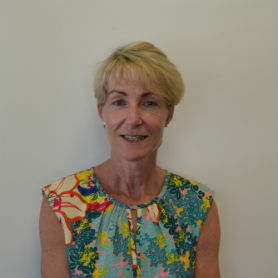
Lynne Fairs
Lynne is passionate about social work, having been employed in statutory child protection for the last 25 years. She was recruited from social service work in the UK in 2006 to join Starship’s child protection unit. Since then she has worked in maternal mental health and held various operational roles for Child Youth and Family.
Workshop session: Professional safety
3.30-4.30pm 27 April at conference room 3
With the Vulnerable Children’s Act comes a greater responsibility and accountability for both organisations and practitioners. This workshop will support practitioners in understanding the implications of this for themselves, and how to continue to work in professionally safe ways in the context of working with vulnerable children and families. Be prepared to be challenged!

Pramila Lala
Pramila is a Clinical Psychologist currently working for Auckland DHB at the Kari centre and has 15 years’ experience working in the mental health field, both in New Zealand and in the UK. Pramila’s role involves working across two teams – the Intake/Triage team – which has a strong focus on both managing risk and supporting professionals in the community. Pramila also provides support to families – Tu Tangata Tonu – where there is a parental mental health condition. Pramila is particularly interested in issues of diversity, working with systems and reflective practice and she has recently been appointed as a Practice Supervisor for Psychology.
WORKSHOP FULL
Workshop: How will I know? assessing risk of self-harm and suicidality in children and adolescents
10.45-12.00pm 28 April at conference room 1
This workshop will explore the complex nature of assessing risk-to-self in children and adolescents. It will focus on issues such as the process of assessing risk, how to respond appropriately, acknowledging the impact of risk issues on staff, and where to seek support. The workshop will be interactive and involve participants generating discussions that may give rise to action points to take forward into their work.
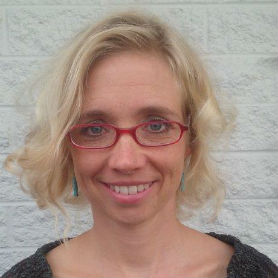
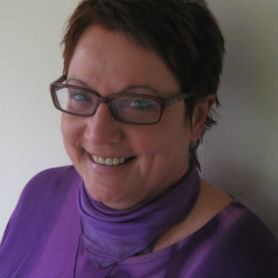
Eva Corson
Eva Corson, Team Leader FWN Rotorua. Accredited Incredible Years Parent Group Leader and Accredited Incredible Years Peer Coach. Previous member of National Incredible Years Practice Group
Ute Ludwig-Morchen
Ute Moerchen- Ludwig has been a Family worker FWN for 6 years and is Accredited as an Incredible Years Parent Group Leader.
Ute is a Social Worker trained and has worked with children and youth with behavioural issues as well as with adults in metal health settings.
Workshop session: Incredible Years pathway workshop
10.45-12.00pm 28 April on the stage
This workshop is aimed at all Incredible Years facilitators who have done the basic training and are therefore on accreditation pathway. We will break down the requirements for accreditation, both on the paperwork level and also on the practice level needed for your tape. We will support you setting your own achievable goal/next step on your pathway towards accreditation. Hopefully you will leave the workshop feeling “ I can do this!”
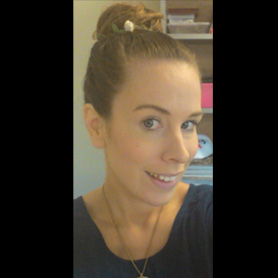
Hannah Mills
As a full member of NZAC I’ve been counselling for seven years, nearly three of those directly with children and families. Most of my experience has been with mental health, trauma, self harm and suicide. Since beginning my direct work with children my area’s of passion are trauma, abuse and attactment issues.
WORKSHOP FULL
Workshop session: Therapeutic approaches to working with vulnerable children
10.45-12.00pm 28 April at conference room 2
Ideas for working with children who have experienced Trauma. This is done through the lenses of two child/families I have supported while at Family Works.

Sally Kennedy
Workshop session: Admin session for administrators only
10.45-3.00pm 28 April
Administrator workshop, sharing the collective knowledge (small group discussions).
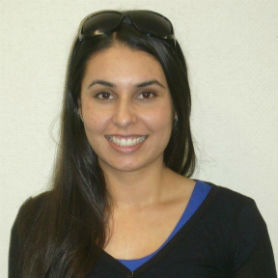
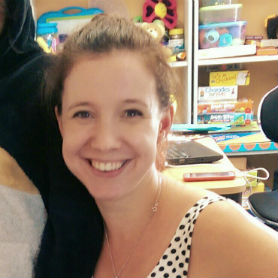
Jessica Barrett
Jessica Barrett is a SWIS and strong advocate of collaborative practice in schools. Jess is part of the Family Works Waitakere team, having been in social work for 6 years
Maria Kostanich
Maria Kostanich -B.Soc.P
Maria Kostanich is a Social Worker in School in West Auckland. In her first role post qualifying role Maria has successfully engaged with and supported her school based collaboration initiative, bringing wrap around services to challenging students in her school
Workshop session: Collaborative working within schools
10.45-12.00pm 28 April at conference room 3
Pastoral Care meetings have been running for the last three years at Henderson Intermediate School, West Auckland. They have become an effective pathway for collaboratively supporting vulnerable students and their families who have medium to high risk issues and complexities.
This workshop will provide you with a framework which may be transferable into your school.
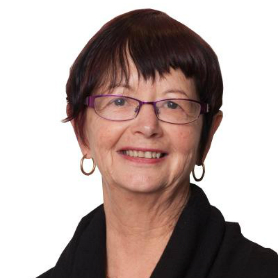
Margie Matthews
Margie is a qualified counsellor and educator with particular interests in adult literacy and numeracy, curriculum design and the development of second-chance students. She worked previously as a manager programme leader at North Tec, and as a family group coordinator and supervisor with Child Youth and Family.
Workshop session: Managing self in changing times
10.45-12.00pm 28 April at theatre right
- What is change
- How we react to change – positive and negative
- Strategies to take care of self when faced with stressful situations
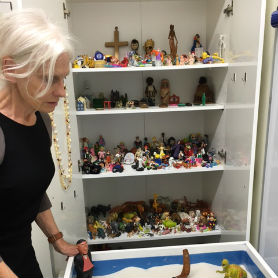
Dotti McArthur
Dotti McArthur has worked at Family Works for 7 years, utilising Sand tray practice regularly in counselling with families, particularly children. Outcomes for children have been heartening.
Workshop title: Sand tray
10.45-12.00pm 28 April at Carbine
This workshop will support practitioners in the use of Sand tray in enriching a child’s journey from a sense of isolation to a sense of connection.

YWiSS
The YWISS team are a gregarious collaboration of social workers and youth workers through ATWC and FWN. This new project has proven valuable help to shape the way that we engage in school.
Workshop session: Check and Connect – supporting our vulnerable youth to stay engaged in school
10.45-12.00pm 28 April at Regent room (also at 3.00pm 27 April)
This workshop will look at such questions as: What are the tools needed to support vulnerable young people who are losing interest in school? What are important values to effectively collaborate with schools? What are measures of success when applying our engagement within an education structure? How do you know if your work is making an impact on the student and the school as a whole?


